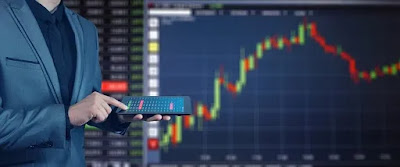COMMODITY MARKET
 |
| commodity market |
COMMODITY MARKET meaning & overview
Mainly the meaning of commodity market is it is market place where in wide range of products such as PRECIOUS METALS, AGRI COMMODITY, ENERGY PRODUCTS (OIL) & SPICES other related commodity are buying and selling.
Also commodity market is about trading of precious metals, agri commodity, energy products,spices and other commodity.
 |
| COMMODITIES / BRENT CRUDEOIL, GOLD SILVER & AGRI COMMODITY |
Overview
Gold and other metals can be accessed in number of ways including traditional physical holdings, futures contracts, D-mat forms, ETFs and through correlated markets such as mining stocks. Each mode of holdings has its own advantages and disadvantages but with so many options available, investors of all types should be able to find a product to match their temperament.
Trading in commodities futures has a long history. However, organized trading on an exchange started in 1848 with the establishment of the Chicago Board of Trade (CBOT).
The first milestone in the 150 years rich history of organized trading in commodities in India was the constitution of the Bombay Cotton Trade Association in the year 1875. India had a vibrant futures market in commodities till it was discontinued in the mid 1960's, due to war, natural calamities and the consequent shortages.
Following the introduction of liberalization policy in 1991, the Government of India appointed an expert committee on forward market under the chairmanship of Prof. K. N. Kabra in 1993. The committee submitted its report in 1994 advocating the re-introduction of futures and expanding its coverage to agricultural commodities. It also proposed an expansion for the coverage of futures markets to minimize the wide fluctuations in commodity prices and for hedging the risk arising from extreme price volatilities.
Commodities futures contracts and the exchanges they trade in are governed by the Forward Contracts (Regulation) Act, 1952. The regulator is the Forward Markets Commission (FMC), a division of the Ministry of Consumer Affairs, Food and Public Distribution.
In 2002, the Government of India allowed the re-introduction of commodity futures in India. .
Commodity trading is an essential part of the financial market that provides investors the opportunity to rule out market volatility and make profits. Indian market offers a wide variety of commodities for trading, which are classified as precious metal, base metal, energy and agro-based commodities. More often online commodity trading is traded in futures, where future contracts are traded and not commodities itself.
EXCHANGE TRADED COMMODITIES ARE
1) METALS- Gold, silver, aluminium, nickel, zinc, copper, led, sponge
2) FIBER- cotten l staple, cotton m staple, kapas
3) ENERGY- Brent crudeoil, furnance oil, natural gas
4) SPICES- Cardamam jeera paper red chilli turmeric
5) PULSES- chana, masur, yellow pieces
6) OIL & OIL SEEDS- castor oil, castor seeds, coconut cake, cotton
7) CEREALS- Guargum, guar seed, gurchaku, mentha oil potato
BENEFITS OF COMMODITY FUTURES MARKET
1)PRISE DISCOVERY;
Based on inputs regarding specific market information, buyers and sellers are conduct trading at futures exchanges. This results into continuous price mechanism discovery.
2) HEDGING
It is strategy of managing price risk that is inherent in spot market by taking an equal but opposite position in the futures market to protect their business from adverse price change.
3) IMPORT-EXPORT COMPETITIVENESS
The exporters can hedge their price risk and improve their competitiveness by making use of futures market. A majority of traders which are involved in physical trade internationally intend to buy forwards. The existence of futures market allows the exporters to hedge their proposed purchase by temporarily substituting for actual purchase till the time is ripe to buy in physical market.
4) PORTFOLIO DIVERSIFICATION
Commodity offers at another investment options which is largely negatively.correlated with equity and currency and thus could offer great diversification
SIX MAJOR COMMODITY TRADING EXCHANGES IN INDIA
1) Multi Commodity Exchange – MCX
2) National Commodity and Derivatives Exchange – NCDEX
3) National Multi Commodity Exchange – NMCE
4) Indian Commodity Exchange – ICEX
5) Ace Derivatives Exchange – ACE
6) The Universal Commodity Exchange – UCX




Comments
Post a Comment